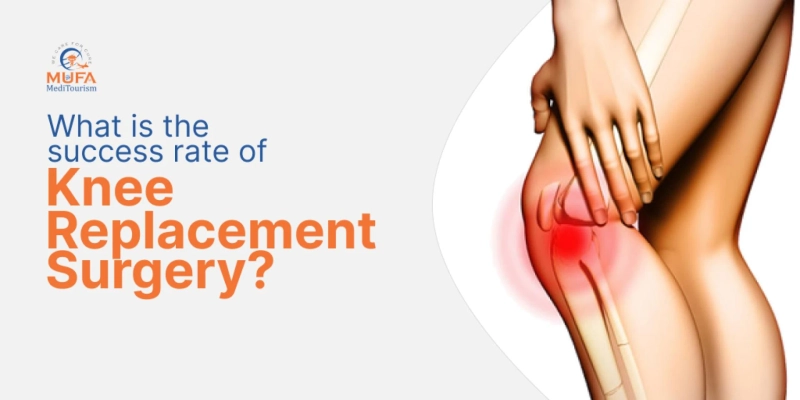If you or a loved one is considering knee replacement surgery, one of the crucial questions that may be on your mind is, "What is the success rate of knee replacement surgery?" This medical procedure, also called knee arthroplasty, is a common solution for people suffering from severe knee pain and restricted mobility due to various conditions such as osteoarthritis, rheumatoid arthritis, or post-traumatic arthritis. In this comprehensive article, we will delve into the success rate of knee replacement surgery, covering important details, recovery expectations, potential risks, and much more to help you make an informed decision about this life-changing procedure.
What is knee replacement surgery?
Knee replacement surgery is a procedure to replace the worn-out surfaces of the knee joint with artificial implants. The implants are made of metal and plastic, and they are designed to mimic the natural movement of the knee joint. The procedure can be performed on either a partial or total knee replacement basis, depending on the extent of the damage.
What are the benefits of knee replacement surgery?
The benefits of knee replacement surgery include:
Pain relief: Knee replacement surgery can provide significant pain relief for people with severe knee arthritis.Improved function: Knee replacement surgery can help to improve people's ability to walk, climb stairs, and participate in activities that they enjoy.Improved quality of life: Knee replacement surgery can improve people's quality of life by reducing pain and improving their ability to function.What is the success rate of knee replacement surgery?
The success rate of knee replacement surgery is high. The American Academy of Orthopedic Surgeons (AAOS) study estimates that 90% of patients who undergo knee replacement surgery experience a significant decrease in pain. For many, it helps them stay active and may enable them to return to activities they previously enjoyed, such as walking and golf. The AAOS notes that over 90% of replacement knees are still functioning after 15 years. As per research published in 2019, 82 percent of total knee replacements are still functioning after 25 years.
What are the risks of knee replacement surgery?
As with any surgery, there are some risks associated with knee replacement surgery. These risks include:
Infection: The risk of infection after knee replacement surgery is low, but it is a possibility.Blood clots: legs may develop blood clots after the surgery. These clots can travel to the lungs and cause a life-threatening condition called a pulmonary embolism.Loosening of the implants: The implants in a knee replacement can loosen over time. This can result in pain and instability in the knee.Need for revision surgery: In some cases, it may be necessary to revise a knee replacement surgery. This means that the implants will need to be changed.What are the factors that affect the success of knee replacement surgery?
The success of knee replacement surgery is affected by a number of factors, including:
The patient's age and overall health: Older patients and patients with other medical conditions may be at a higher risk for complications after surgery.The severity of the patient's knee arthritis: Patients with more severe knee arthritis are more likely to experience pain relief and improved function after surgery.The skill of the surgeon: The skill of the surgeon can have a significant impact on the success of knee replacement surgery.The patient's compliance with the post-operative rehabilitation plan: The patient's compliance with the post-operative rehabilitation plan is essential for a successful outcome.Conclusion
Knee replacement surgery has a high success rate, with a vast majority of patients experiencing significant pain relief and improved mobility. Factors such as preoperative health, the surgeon's expertise, implant selection, and postoperative care contribute to the overall success of the procedure. While the surgery comes with inherent risks, the benefits of pain relief, enhanced mobility, and improved quality of life make it a valuable option for those suffering from knee conditions that impact their daily activities. As with any medical decision, it is essential to consult with a qualified healthcare professional to determine the best course of action based on individual circumstances.


